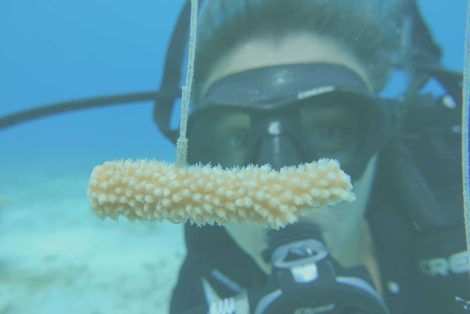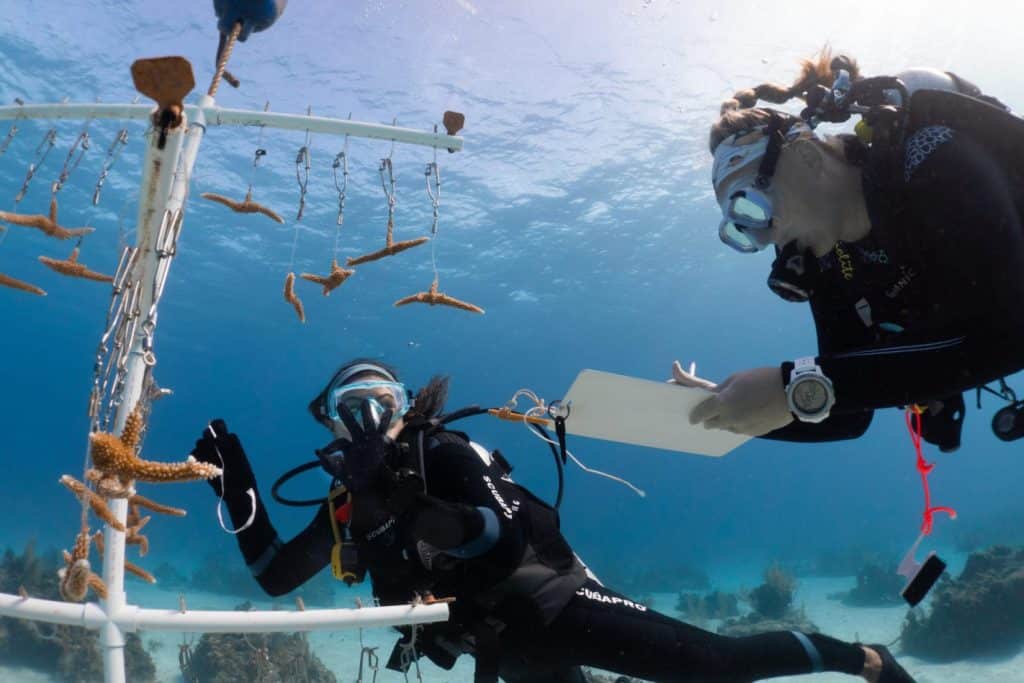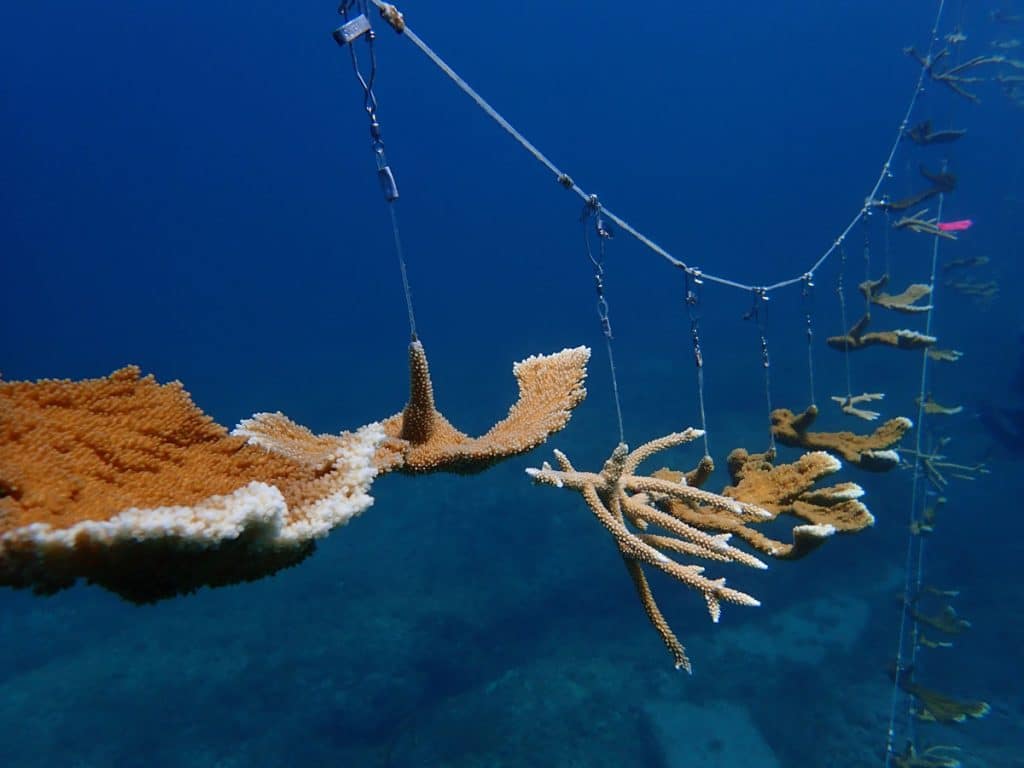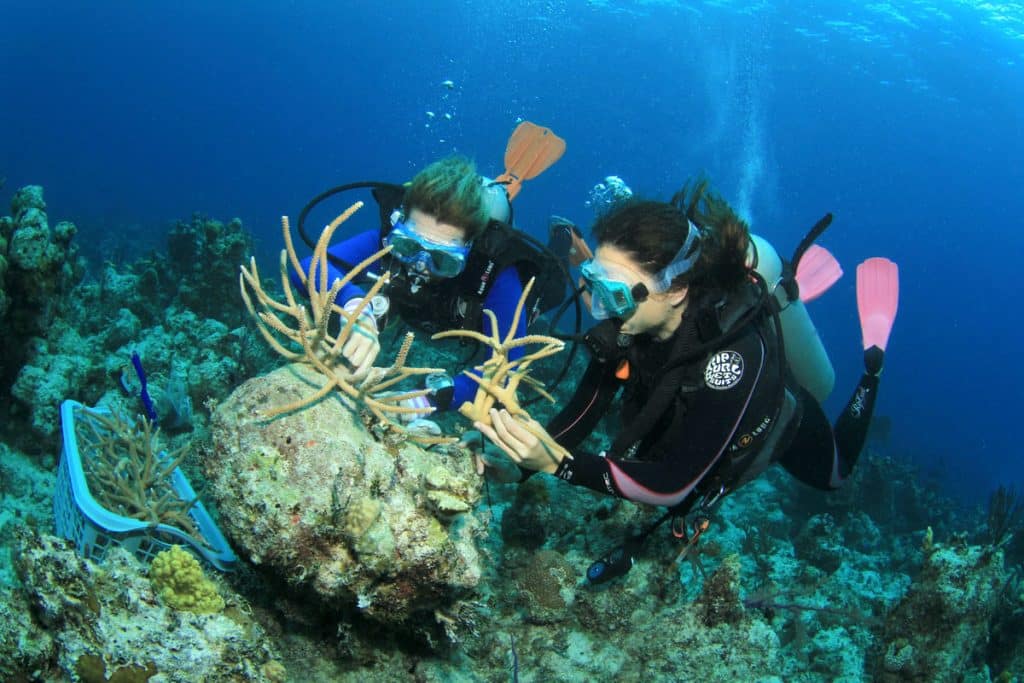What We Do

As coral reefs are degrading, its ecosystems services are diminishing, threatening the marine life that depends on them and the human populations living along the tropical coasts. To reverse coral reef loss several strategies have been developed by scientists, conservation practitioners and managers, including the conservation of original habitats and establishment of marine protected areas, decisions to reduce local environmental threats and other tensors and, reef restoration and rehabilitation projects. While restoration is the process of bringing the ecosystem to its original condition, rehabilitation aims to recover structural or functional characteristics. Therefore, the RRN aims to rehabilitate coral reefs by restoring coral populations.







History

The Reef Rescue Network (RRN) was established in 2017 by the Perry Institute for Marine Science (PIMS) as a network of non-profit organizations and for-profit businesses committed to improving the condition of coral reefs by restoring populations of corals and other species that will build coral reef resilience. These actions will result in meaningful coral restoration across large spatial scales to make substantial improvements to coral reef health and contribute to our knowledge of coral biology, ecology, reef ecosystem function and how we can improve their condition.

Reef Rescue Diver
Interactive Map
Reef Rescue Diver Interactive Map

To participate, you must be a certified open water diver and at least 12 years old. View our interactive map to see you you can take the PADI Reef Rescue Diver Specialty Course, as well as other Coral Nursery Experiences.

Partner Training

The RRN empowers people and organizations to take action to restore coral reefs. Our partners consist of dive shops, hotels and resorts, businesses and other conservation groups.
Specifically, the RRN helps our partners: 1) create coral restoration goals unique to their locations, 2) build coral nurseries, 3) grow corals in their nurseries, 4) outplant corals to reefs and 5) monitor the success of their restoration efforts, from the individual coral through to the entire reef ecosystem.
Interested in partnering with us? Email our Reef Rescue Network Coordinator, Hayley-Jo Carr (hayley.carr@perryinstitute.org), to learn how!
Coral Nurseries

Coral nurseries are an important component to marine conservation, as they provide a collection of species that can be added to the reef to help regenerate areas that are stressed or damaged. Slow growth rates of coral were once thought to limit our ability to restore corals reefs however it has since been shown that different corals grow at different rates and in favorable conditions can grow much faster than in natural conditions on reefs. The initial ideas behind coral nurseries were to help create and grow new reefs, and to help coral reefs recover from physical damage such as boat anchors, and climate change induced coral bleaching. Over the last few years many areas of coral reef have been rejuvenated with corals grown from a nursery and have created new habitats for marine life.


Planting Corals

The goal is to outplant nursery-reared corals back on the reef to bolster existing coral colonies and to increase the likelihood of a diversity of coral colonies being near enough to each other for successful cross-fertilization during sexual reproduction. By increasing population numbers and the numbers of distinct parent genotypes through propagation and outplanting of nursery grown fragments, sexual reproduction and recruitment are expected to have higher success rates ultimately aiding in the natural recovery of the species. Outplanted corals have even spawned which is a huge indicator to the positive effects this type of coral rehabilitation can have and how it can help to restore huge tracts of reef.
Get Involved and Learn.

Visitors and locals can now immerse themselves in coral restoration activities at a partner location within the Reef Rescue Network. The network has coral nurseries that offer coral restoration experiences throughout The Bahamas, Aruba & St. Lucia. PIMS has developed a PADI Reef Rescue Diver Specialty Course that dive shops throughout the Reef Rescue Network are teaching. To participate, you must be a certified open water diver and at least 12 years old. The course takes one day and consists of knowledge development and two open water dives at a coral nursery.
Choose from our many partners offering this specialty via our Reef Rescue Diver Interactive Map and contact them direct to book your course. This specialty intends to familiarize divers with the skills, knowledge, planning, organization, procedures, and techniques involved with coral nursery diving. PADI Reef Rescue Instructors educate divers about coral nurseries, including essential facts about coral reefs, threats facing corals, coral nurseries function and how to maintain coral nurseries. Our interactive map will show you where you can take the PADI Reef Rescue Diver Specialty Course, as well as other Coral Nursery Experiences. Please note, private coral nurseries are shown however these are solely for research and conservation and not accessible to the public.
- Learn what corals are.
- The different ways corals feed.
- How to Identify different types of corals.
- How corals reproduce.
- The value of coral reefs.
- Threats to coral reefs.
- Steps to help protect coral reefs.
- Coral restoration.
- How to maintain a coral nursery.
- Coral nursery problem solving.
- How to plant corals.
Research

We create and manage coral restoration practices within organizations and businesses throughout The Bahamas and the Caribbean. Our goal is to help organizations and businesses see how coral restoration benefits the educational, recreational, economic and scientific agendas of the entire region.
Join Our Coralition

Subscribe to our newsletter to stay updated on our latest research missions, captivating stories, and exciting job opportunities.


